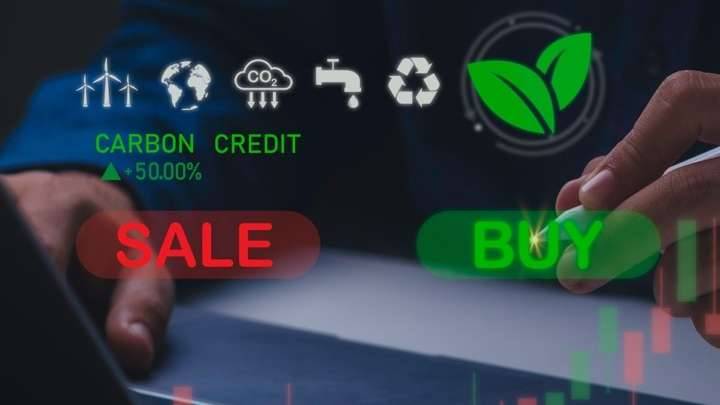
Emerging Career "Carbon Trading Broker"
ARTICLES | Feb 13, 2024
[#FutureofSustainability] [#Carbontradingbroker] Carbon emissions data collection is becoming a new measure that every organization must focus on. The carbon credit market is increasingly seen as an economic mechanism to stimulate solutions to the climate crisis. Carbon brokerage is likely to continue to grow.
The Paris Agreement pushes countries to work together to keep global temperatures from rising 1.5°C above pre-industrial levels. There has been a call for all countries to regularly report their greenhouse gas emissions in tons of carbon dioxide or equivalent. Many countries have set policies such as targets for net-zero carbon emissions. The European Union aims to reduce carbon emissions by 55% by 2030 and to zero by 2050, while Thailand aims for 2065.
To achieve these goals while finding business opportunities, companies are looking to sell carbon credits to organizations that still emit high carbon pollution, creating careers in carbon trading.
Carbon trading brokers are organizations or financial institution that act as intermediaries, contacting buyers and sellers, providing advice, evaluating and certifying carbon credits. Sellers can sell carbon credits to people with high carbon emissions. Brokers typically charge a service fee of 5-20% on trades. In 2022, the carbon credit trading market was valued at US$979 billion from the exchange of greenhouse gas ownership rights equivalent to 13.22 billion tons of carbon dioxide.
The market is expected to grow to 2.68 trillion US dollars by 2028, or 19.57 billion tons of carbon dioxide, at a compound annual growth rate of 6.78% over the forecast period 2023-28. Carbon credits will reach an estimated price of US$12 per tonne by 2030 and US$35 by 2050. Asia, especially Hong Kong, is expected to become the world's largest carbon credit market.
The collection of data and trading of carbon credits is still a voluntary system but large markets like the European Union are clearly likely to prioritize doing business only with organizations that reduce carbon emissions.
Important implications for the future:
- Carbon brokers are becoming a new source of income for many organizations, both existing agencies such as government, environmental agencies, consulting organization, certification agencies and emerging organizations. They will play a key role in driving environmental stewardship and climate action projects to offset carbon emissions through economic mechanisms.
- Small and medium-sized enterprises are under pressure to reduce carbon emissions. Meanwhile, large corporations can trade carbon credits without having to change business direction.
- The private sector has set strict standards for governance and internal carbon emissions to meet the needs of customers controlled by government agencies.
- Carbon credit brokerage has become a new service that creates high business opportunities. Many environmental and sustainability organizations strive to learn and respond to customer needs.
Read More: THE WORLD IN 2035
Sources: UNDP, McKinsey
Want to know more about us, click www.futuretaleslab.com and https://www.blockdit.com/futuretaleslab











